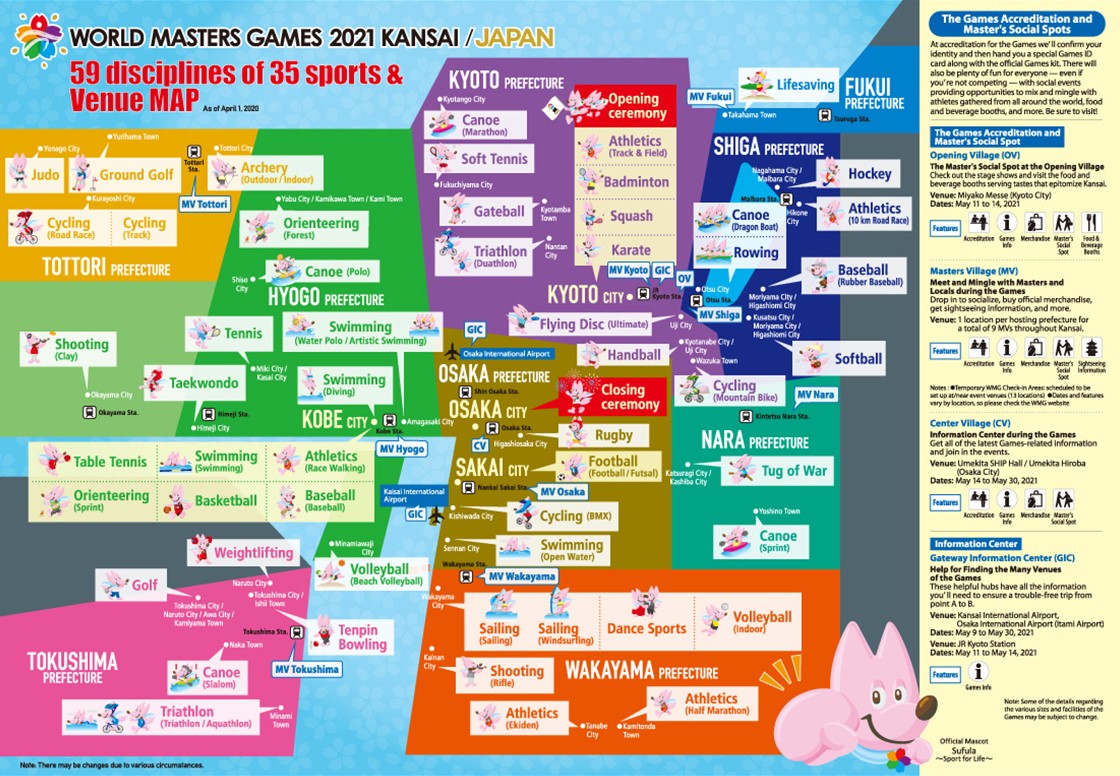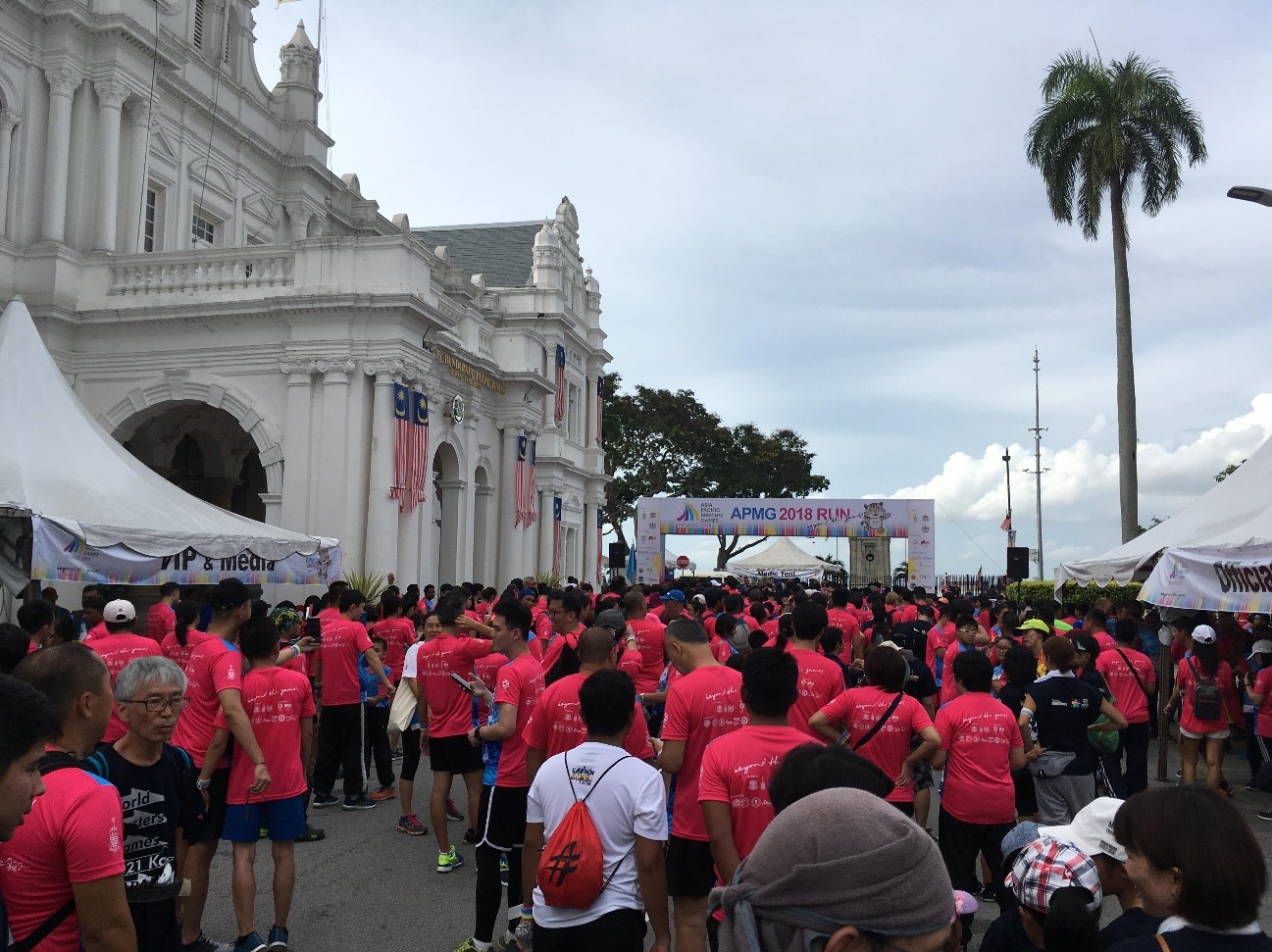[Research column] (Vol.3) A revised Masters Games participant typology for re-energizing the Masters Games culture following the COVID-19 pandemic.
公開日 2020.11.04
Due to the extraordinary circumstances of the COVID-19 pandemic, the 2021 World Masters Games Kansai has been postponed to 2022. This is one of the largest international masters (participant-based) sporting events, and a total of 30,000 Japanese and 20,000 international masters athletes are expected to participate. Wakayama Prefecture will host the following events: dance sports, sailing/windsurfing, volleyball (indoor), shooting (rifle), athletics (ekiden, half marathon), and expects to have many domestic and international sport tourists.

Fig 1. The World Masters Games Kansai 2021 Venue Map
One of the Masters Games research avenues is a typology of Masters Games participants. Development of such typologies has important practical implications for promotional/marketing strategies for the Masters Games. My recent article (Ito, 2020) proposed a revised Masters Games participant typology. Based on fun- and competition-orientations, as Figure 2 displays, this typology classifies Masters Games participants into four groups: Games Competitor (high fun-orientation, high competition-orientation), Games Enthusiast (high fun-orientation, low competition-orientation), Serious Competitor (low fun-orientation, high competition-orientation), and Novice (low fun-orientation, low competition-orientation).

Fig 2. A revised typology of Masters Games participants
Classifying people is a traditional and basic approach for developing promotional/marketing strategies; however, this has been overlooked in Masters Games contexts for almost two decades. As Masters Games participation has become globalized alongside the globalization of sport tourism, Masters Games will become more diverse in terms of participants and event management, and the typology of Masters Games participants must be revised and modified according to these developments. In particular, under the extraordinary circumstances of the COVID-19 pandemic where an unwillingness to participate in leisure activities including masters sports is evident, such evidence-based promotional/marketing strategies will be needed for re-energizing the Masters Games culture in the post-pandemic context.

Fig 3. The Asia Pacific Masters Games 2018 Penang
For further information:
- Ito, E. (2020). Relationships of involvement and interdependent happiness across a revised Masters Games participant typology. Journal of Sport & Tourism. Advance online publication. https://doi.org/10.1080/14775085.2020.1824799
- The Organizing Committee of the Kansai World Masters Games 2021 (https://wmg2021.jp/en/)
Author: ITO Eiji (Acting Director, Center for Tourism Research, Wakayama University (Japan))
Contact: eijito[at]wakayama-u.ac.jp

